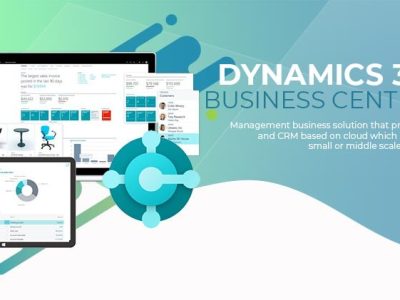In the ever-evolving world of business technology, Microsoft Dynamics 365 Business Central has emerged as a leading ERP (Enterprise Resource Planning) solution for small and mid-sized businesses. As we move into 2025, the integration of Artificial Intelligence (AI) and Machine Learning (ML) is revolutionizing how businesses operate, making Business Central smarter, faster, and more intuitive than ever before.
In this blog, we’ll explore how AI and ML are transforming Business Central in 2025, the benefits they bring to businesses, and what this means for the future of ERP systems.
Table of Contents
- Introduction to Business Central and AI/ML
- Key AI and ML Features in Business Central 2025
- Predictive Analytics
- Intelligent Automation
- Personalized User Experiences
- Advanced Fraud Detection
- Natural Language Processing (NLP)
- Benefits of AI and ML in Business Central
- Improved Decision-Making
- Enhanced Productivity
- Cost Savings
- Scalability and Flexibility
- Real-World Use Cases
- Retail and E-Commerce
- Manufacturing
- Financial Services
- Challenges and Considerations
- The Future of AI and ML in ERP Systems
- Conclusion
1. Introduction to Business Central and AI/ML
Microsoft Dynamics 365 Business Central is a cloud-based ERP solution designed to help businesses manage finances, operations, sales, and customer service in one unified platform. It’s known for its flexibility, scalability, and ease of use, making it a popular choice for SMBs.
In 2025, AI and ML are no longer just buzzwords—they are integral components of modern ERP systems. By leveraging these technologies, Business Central is becoming more than just a tool for managing data; it’s evolving into a proactive partner that helps businesses anticipate challenges, optimize processes, and drive growth.
2. Key AI and ML Features in Business Central 2025
Predictive Analytics
One of the most significant advancements in Business Central is the use of predictive analytics. By analyzing historical data and identifying patterns, AI can forecast future trends, such as sales performance, inventory needs, and cash flow.
For example, a retail business can use predictive analytics to anticipate seasonal demand, ensuring they stock the right products at the right time. This reduces waste, improves customer satisfaction, and boosts profitability.
Intelligent Automation
AI-powered automation is transforming mundane, repetitive tasks into seamless processes. In Business Central, intelligent automation handles tasks like invoice processing, order management, and financial reporting.
For instance, ML algorithms can automatically match purchase orders with invoices, flagging discrepancies for human review. This not only saves time but also minimizes errors, allowing employees to focus on higher-value activities.
Personalized User Experiences
In 2025, Business Central is leveraging AI to deliver personalized user experiences. The system learns from user behavior and preferences, tailoring dashboards, reports, and recommendations to individual needs.
For example, a sales manager might see a dashboard highlighting key performance metrics, while a financial analyst receives insights into cash flow trends. This customization enhances usability and ensures that users get the most relevant information at a glance.
Advanced Fraud Detection
Financial fraud is a growing concern for businesses of all sizes. Business Central now incorporates AI-driven fraud detection tools that monitor transactions in real-time, identifying suspicious patterns and flagging potential risks.
For example, if an unusually large payment is made to a new vendor, the system can alert the finance team for further investigation. This proactive approach helps businesses mitigate risks and protect their assets.
Natural Language Processing (NLP)
With the integration of NLP, Business Central users can interact with the system using natural language commands. Instead of navigating complex menus, users can simply ask, “What were last month’s top-selling products?” or “Show me overdue invoices.”
This feature makes the system more accessible, especially for non-technical users, and speeds up data retrieval and analysis.
3. Benefits of AI and ML in Business Central
Improved Decision-Making
AI and ML provide businesses with actionable insights, enabling data-driven decision-making. By analyzing vast amounts of data, these technologies identify trends, opportunities, and risks that might otherwise go unnoticed.
Enhanced Productivity
Automation reduces the time spent on manual tasks, freeing up employees to focus on strategic initiatives. This leads to higher productivity and better resource allocation.
Cost Savings
By optimizing processes and reducing errors, AI and ML help businesses save money. For example, predictive maintenance in manufacturing can prevent costly equipment breakdowns, while intelligent inventory management minimizes overstocking and stockouts.
Scalability and Flexibility
As businesses grow, their needs evolve. AI and ML make Business Central more scalable and adaptable, ensuring that the system can handle increasing complexity without compromising performance.
4. Real-World Use Cases
Retail and E-Commerce
In the retail sector, AI-powered demand forecasting helps businesses optimize inventory levels, reducing waste and improving customer satisfaction. Personalized recommendations also enhance the shopping experience, driving sales and loyalty.
Manufacturing
Manufacturers are using AI to predict equipment failures, schedule maintenance, and optimize production schedules. This minimizes downtime, reduces costs, and ensures timely delivery of products.
Financial Services
Financial institutions are leveraging AI for fraud detection, risk assessment, and customer service. Chatbots powered by NLP provide instant support, while predictive analytics help identify investment opportunities.
5. Challenges and Considerations
While the benefits of AI and ML are undeniable, businesses must also address certain challenges:
- Data Privacy and Security: With increased data usage, ensuring privacy and security is critical.
- Implementation Costs: Integrating AI and ML into existing systems can be expensive.
- Skill Gaps: Businesses may need to upskill employees to fully leverage these technologies.
6. The Future of AI and ML in ERP Systems
As AI and ML continue to evolve, their impact on ERP systems like Business Central will only grow. Future advancements may include:
- Hyper-Personalization: Even more tailored user experiences based on real-time data.
- Autonomous Decision-Making: Systems that make decisions and take actions without human intervention.
- Enhanced Collaboration: AI-driven tools that facilitate better communication and collaboration across teams.
7. Conclusion
The integration of AI and ML into Microsoft Dynamics 365 Business Central is transforming how businesses operate in 2025. From predictive analytics to intelligent automation, these technologies are making ERP systems smarter, faster, and more intuitive.
For businesses looking to stay competitive in a rapidly changing landscape, embracing AI and ML is no longer optional—it’s essential. By leveraging the power of Business Central, you can unlock new levels of efficiency, insight, and growth.
Are you ready to transform your business with AI and ML? Contact us today to learn how Business Central can help you achieve your goals.







